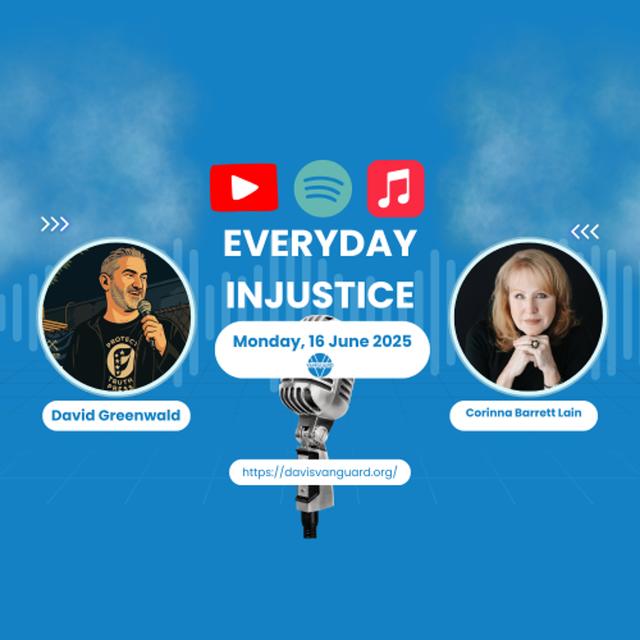
Everyday Injustice Podcast Episode 289: Hidden Cruelties of Lethal Injection and the Death Penalty
Jun 16, 2025•34 min
Episode description
This week on Everyday Injustice, host David Greenwald speaks with Corinna Lane, a former prosecutor and author of the compelling new book Secrets of the Killing State: The Untold Story of Lethal Injection. Lane's career took a dramatic turn from prosecution to death penalty advocacy, driven in part by personal experience with the juvenile justice system and a deep awareness of the power prosecutors wield. Her book—and this conversation—dives into one of the darkest, most hidden aspects of the American criminal legal system: the disturbing realities of execution by lethal injection.
Lane explains how the U.S. death penalty system, once perceived to be in decline, has seen a troubling resurgence—even as new death sentences remain low and public support continues to erode, especially among younger generations. As a legal historian, she draws on past political moments, such as the 1990s "tough on crime" era and the Clinton administration's death penalty posturing, to make sense of today's contradictions: states moving away from executions on paper while still pursuing death penalty prosecutions in practice. The United States, she reminds listeners, remains an international outlier among modern democracies when it comes to capital punishment.
In the interview, Lane unpacks the pharmaceutical crisis that upended lethal injection—how European governments and drug companies essentially boycotted U.S. executions by refusing to sell drugs used in state killings. This triggered a cascade of sourcing problems that exposed the deeply flawed, often torturous mechanics behind lethal injection. And when confronted with the common argument—why should we care if people sentenced to death suffer during execution?—Lane responds with a powerful moral and constitutional rebuttal: the Eighth Amendment prohibits cruel and unusual punishment not for the sake of the condemned, but to preserve the dignity of the society that punishes them.
Finally, the conversation turns to the humanity of those on death row. Lane recounts the story of Brian Dorsey, a Missouri man sentenced to death whose execution was opposed by over 70 prison staff—including two wardens—because of who he had become after nearly two decades of incarceration. Once a man who committed a terrible crime, Dorsey had transformed into a trusted barber in the prison's honor dorm, respected and even liked by the very people charged with guarding him. Lane's insight is clear: the death penalty does not merely punish people for who they were—it ignores who they have become. And that, she argues, is a grave injustice.
For the best experience, listen in Metacast app for iOS or Android
Open in Metacast